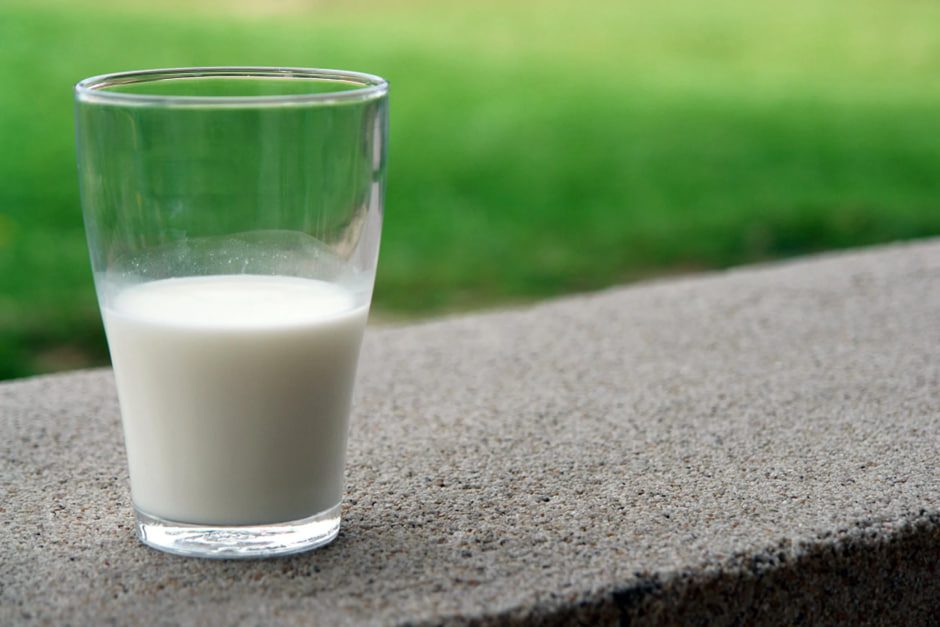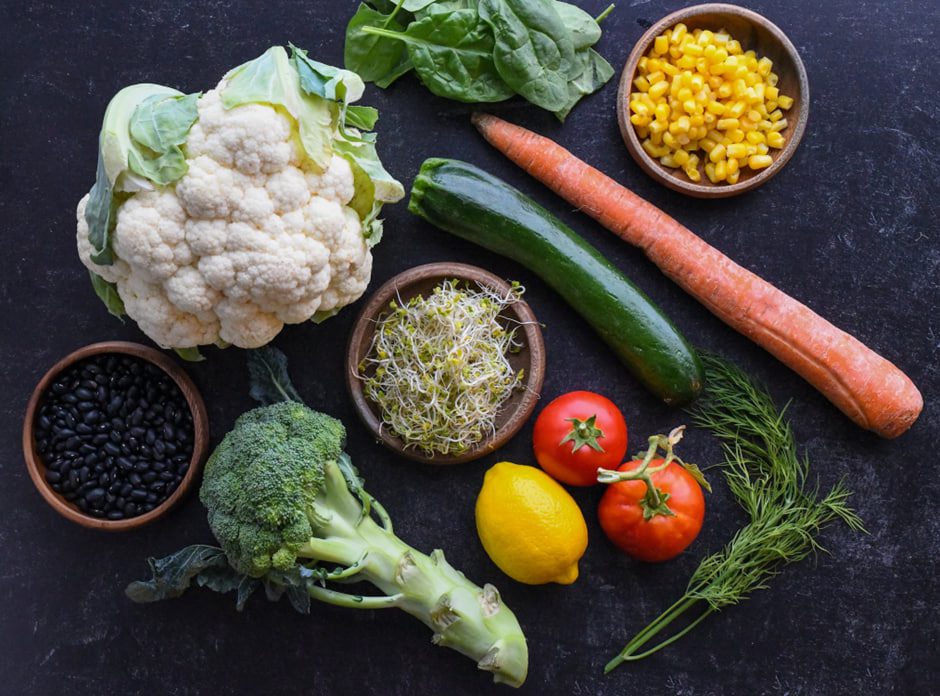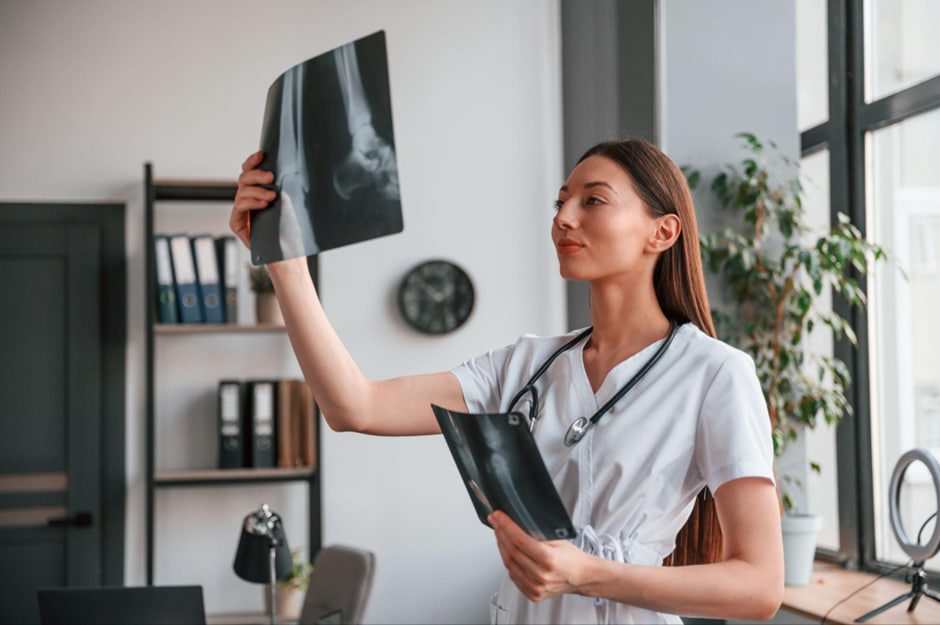When it comes to our health, we often think about movement, healthy food, and getting enough sleep. But, there’s another aspect that plays a big role in our wellbeing. In today’s article, we will discuss the health of an organ that is often overlooked—our bones! We take our bone strength for granted until we trip when going down the stairs or take a risky twirl when ice skating, and then bam! Wearing a cast or brace for weeks can be uncomfortable. Our movement is also very restricted until the bone heals. So, considering how much they do for us, we should also do something to help them out! Keep reading if you want to know how to eat your way to stronger and healthier bones! And how we can keep them working well as we age.
Why is it important to take care of our bones?
When talking about bone health, we first need to understand the process of bone turnover. Bone turnover keeps our bones intact and healthy. It involves two steps: resorption and formation. Think of your bones as a house that needs some remodeling. During resorption, a team of cells called osteoclasts come in to get rid of the damaged and old parts of the bone. They release special chemicals that dissolve the hard parts of the bone that are not needed anymore. That way, there’s more space for healthy bones to grow. During formation, we’re building the new parts of the house. A new team of cells called osteoblasts comes in to build the new foundation. This foundation contains calcium, phosphorus, and collagen, a strong and flexible protein. Once the new bone is formed, mineralization takes place. The bone tissue becomes even stronger as minerals are added to the collagen framework.1,2
This was a quick biology lesson on bone turnover! This process is also influenced by outside factors such as hormones, exercise, nutrition, aging, and disease. When we age, the relationship between resorption and formation can become imbalanced. This means our bones can become more fragile and easier to break, especially for women. Understanding this process helps us take charge of our bone health and wellbeing. By eating well and staying active, we can enjoy resilient bones throughout our lifespan. Let’s dive into what you can eat to help your bones through the natural process of bone turnover.3

What are the essential nutrients for bone health?
What’s the first thing that comes to mind when you hear “bone health?” A wild guess says it’s calcium. And indeed, calcium is very important for building and maintaining sturdy bones! It’s actually the main mineral in both our bones and teeth, and it provides strength and support. Sesame and poppy seeds, small fish such as sardines, and beans (especially white beans) contain higher levels of calcium. And of course, we can’t talk about calcium without mentioning dairy. Products such as yogurt and cheese are particularly high in this mineral. But it’s best not to overdo it! The “milk paradox” states that the countries that eat the most dairy have the highest incidence of fractures and osteoporosis. Still, so far, only observational studies have shown this, so there may be other factors at play.4,5

The vitamin that we get from the sun, vitamin D, is also very important for our bones. It helps our bones absorb and use the calcium that we get from our diet. Without enough vitamin D, our bones can become weak and fragile, which would affect our health. Few foods contain vitamin D; only animal products like eggs and fish, a few types of mushrooms, and fortified foods do. That’s why it’s indicated to supplement, especially in the colder months when the sun is tucked away. This is also where magnesium comes into play. Magnesium helps convert vitamin D into a form that can be used by our bodies. You can get magnesium from plenty of sources, though. Try eating nuts and seeds, greens, legumes, whole grains, or dark chocolate for a magnesium-rich treat. Potassium also works together with magnesium and calcium to keep our bones healthy. You can get your fix of this mineral from fruits like bananas and oranges or veggies like broccoli, spinach, and sweet potatoes.6-8
Vitamin K is especially important for our bone health as we age. Vitamin K produces a chemical called Gla that, coincidentally enough, acts like glue to help keep calcium in the bones. Vitamin K is vital for bone health, but studies have found that supplementation with vitamin K has no protective effect on fractures. But it can’t hurt to add some more vitamin K sources to your diet. Cheese, for instance, is a rich source of this vitamin. You can also try adding more leafy greens like spinach, kale, and mustard greens to your meals. They are great for many aspects of your health! No wonder Popeye was so strong.9
Other lifestyle factors
Regular physical activity is good not only for your muscles but also for your bones! Lifting weights helps strengthen bones and keep them healthy. You can also benefit from bodyweight exercises like dancing or running. Even low-impact activities like walking can have a positive impact. Remember, staying active is fun and keeps our bones strong! As part of the W3llbeing Games program, we have designed many different exciting daily physical activity challenges. Join us in these challenges and see how much stronger your bones can become!10
For good bone health, it’s best to abstain from smoking and drinking too much. Not only are they harmful to your lungs and liver, but they can also weaken your bones. They can also mess with the body’s ability to use the important minerals we discussed. By avoiding smoking and drinking too much, you are taking care of your bones and protecting your health. Plus, you may find yourself feeling better too!11

Take-home message
To summarize, keeping our bones healthy is crucial for a long and happy life. Try to eat more foods that are rich in the vitamins and minerals that our bones need. Also, make sure to get enough exercise and limit smoking and alcohol use. These healthy habits can help you get stronger and healthier bones and lead a long and happy life!

Sign up for our newsletter
Follow our story
How to eat your way to strong and healthy bones
We take our bone health for granted, but there are many diet and lifestyle factors that help keep them strong! Keep on reading.

September 30th, 2023
When it comes to our health, we often think about movement, healthy food, and getting enough sleep. But, there’s another aspect that plays a big role in our wellbeing. In today’s article, we will discuss the health of an organ that is often overlooked—our bones! We take our bone strength for granted until we trip when going down the stairs or take a risky twirl when ice skating, and then bam! Wearing a cast or brace for weeks can be uncomfortable. Our movement is also very restricted until the bone heals. So, considering how much they do for us, we should also do something to help them out! Keep reading if you want to know how to eat your way to stronger and healthier bones! And how we can keep them working well as we age.
Why is it important to take care of our bones?
When talking about bone health, we first need to understand the process of bone turnover. Bone turnover keeps our bones intact and healthy. It involves two steps: resorption and formation. Think of your bones as a house that needs some remodeling. During resorption, a team of cells called osteoclasts come in to get rid of the damaged and old parts of the bone. They release special chemicals that dissolve the hard parts of the bone that are not needed anymore. That way, there’s more space for healthy bones to grow. During formation, we’re building the new parts of the house. A new team of cells called osteoblasts comes in to build the new foundation. This foundation contains calcium, phosphorus, and collagen, a strong and flexible protein. Once the new bone is formed, mineralization takes place. The bone tissue becomes even stronger as minerals are added to the collagen framework.1,2
This was a quick biology lesson on bone turnover! This process is also influenced by outside factors such as hormones, exercise, nutrition, aging, and disease. When we age, the relationship between resorption and formation can become imbalanced. This means our bones can become more fragile and easier to break, especially for women. Understanding this process helps us take charge of our bone health and wellbeing. By eating well and staying active, we can enjoy resilient bones throughout our lifespan. Let’s dive into what you can eat to help your bones through the natural process of bone turnover.3

What are the essential nutrients for bone health?
What’s the first thing that comes to mind when you hear “bone health?” A wild guess says it’s calcium. And indeed, calcium is very important for building and maintaining sturdy bones! It’s actually the main mineral in both our bones and teeth, and it provides strength and support. Sesame and poppy seeds, small fish such as sardines, and beans (especially white beans) contain higher levels of calcium. And of course, we can’t talk about calcium without mentioning dairy. Products such as yogurt and cheese are particularly high in this mineral. But it’s best not to overdo it! The “milk paradox” states that the countries that eat the most dairy have the highest incidence of fractures and osteoporosis. Still, so far, only observational studies have shown this, so there may be other factors at play.4,5

The vitamin that we get from the sun, vitamin D, is also very important for our bones. It helps our bones absorb and use the calcium that we get from our diet. Without enough vitamin D, our bones can become weak and fragile, which would affect our health. Few foods contain vitamin D; only animal products like eggs and fish, a few types of mushrooms, and fortified foods do. That’s why it’s indicated to supplement, especially in the colder months when the sun is tucked away. This is also where magnesium comes into play. Magnesium helps convert vitamin D into a form that can be used by our bodies. You can get magnesium from plenty of sources, though. Try eating nuts and seeds, greens, legumes, whole grains, or dark chocolate for a magnesium-rich treat. Potassium also works together with magnesium and calcium to keep our bones healthy. You can get your fix of this mineral from fruits like bananas and oranges or veggies like broccoli, spinach, and sweet potatoes.6-8
Vitamin K is especially important for our bone health as we age. Vitamin K produces a chemical called Gla that, coincidentally enough, acts like glue to help keep calcium in the bones. Vitamin K is vital for bone health, but studies have found that supplementation with vitamin K has no protective effect on fractures. But it can’t hurt to add some more vitamin K sources to your diet. Cheese, for instance, is a rich source of this vitamin. You can also try adding more leafy greens like spinach, kale, and mustard greens to your meals. They are great for many aspects of your health! No wonder Popeye was so strong.9
Other lifestyle factors
Regular physical activity is good not only for your muscles but also for your bones! Lifting weights helps strengthen bones and keep them healthy. You can also benefit from bodyweight exercises like dancing or running. Even low-impact activities like walking can have a positive impact. Remember, staying active is fun and keeps our bones strong! As part of the W3llbeing Games program, we have designed many different exciting daily physical activity challenges. Join us in these challenges and see how much stronger your bones can become!10
For good bone health, it’s best to abstain from smoking and drinking too much. Not only are they harmful to your lungs and liver, but they can also weaken your bones. They can also mess with the body’s ability to use the important minerals we discussed. By avoiding smoking and drinking too much, you are taking care of your bones and protecting your health. Plus, you may find yourself feeling better too!11

Take-home message
To summarize, keeping our bones healthy is crucial for a long and happy life. Try to eat more foods that are rich in the vitamins and minerals that our bones need. Also, make sure to get enough exercise and limit smoking and alcohol use. These healthy habits can help you get stronger and healthier bones and lead a long and happy life!

When it comes to our health, we often think about movement, healthy food, and getting enough sleep. But, there’s another aspect that plays a big role in our wellbeing. In today’s article, we will discuss the health of an organ that is often overlooked—our bones! We take our bone strength for granted until we trip when going down the stairs or take a risky twirl when ice skating, and then bam! Wearing a cast or brace for weeks can be uncomfortable. Our movement is also very restricted until the bone heals. So, considering how much they do for us, we should also do something to help them out! Keep reading if you want to know how to eat your way to stronger and healthier bones! And how we can keep them working well as we age.
Why is it important to take care of our bones?
When talking about bone health, we first need to understand the process of bone turnover. Bone turnover keeps our bones intact and healthy. It involves two steps: resorption and formation. Think of your bones as a house that needs some remodeling. During resorption, a team of cells called osteoclasts come in to get rid of the damaged and old parts of the bone. They release special chemicals that dissolve the hard parts of the bone that are not needed anymore. That way, there’s more space for healthy bones to grow. During formation, we’re building the new parts of the house. A new team of cells called osteoblasts comes in to build the new foundation. This foundation contains calcium, phosphorus, and collagen, a strong and flexible protein. Once the new bone is formed, mineralization takes place. The bone tissue becomes even stronger as minerals are added to the collagen framework.1,2
This was a quick biology lesson on bone turnover! This process is also influenced by outside factors such as hormones, exercise, nutrition, aging, and disease. When we age, the relationship between resorption and formation can become imbalanced. This means our bones can become more fragile and easier to break, especially for women. Understanding this process helps us take charge of our bone health and wellbeing. By eating well and staying active, we can enjoy resilient bones throughout our lifespan. Let’s dive into what you can eat to help your bones through the natural process of bone turnover.3

What are the essential nutrients for bone health?
What’s the first thing that comes to mind when you hear “bone health?” A wild guess says it’s calcium. And indeed, calcium is very important for building and maintaining sturdy bones! It’s actually the main mineral in both our bones and teeth, and it provides strength and support. Sesame and poppy seeds, small fish such as sardines, and beans (especially white beans) contain higher levels of calcium. And of course, we can’t talk about calcium without mentioning dairy. Products such as yogurt and cheese are particularly high in this mineral. But it’s best not to overdo it! The “milk paradox” states that the countries that eat the most dairy have the highest incidence of fractures and osteoporosis. Still, so far, only observational studies have shown this, so there may be other factors at play.4,5

The vitamin that we get from the sun, vitamin D, is also very important for our bones. It helps our bones absorb and use the calcium that we get from our diet. Without enough vitamin D, our bones can become weak and fragile, which would affect our health. Few foods contain vitamin D; only animal products like eggs and fish, a few types of mushrooms, and fortified foods do. That’s why it’s indicated to supplement, especially in the colder months when the sun is tucked away. This is also where magnesium comes into play. Magnesium helps convert vitamin D into a form that can be used by our bodies. You can get magnesium from plenty of sources, though. Try eating nuts and seeds, greens, legumes, whole grains, or dark chocolate for a magnesium-rich treat. Potassium also works together with magnesium and calcium to keep our bones healthy. You can get your fix of this mineral from fruits like bananas and oranges or veggies like broccoli, spinach, and sweet potatoes.6-8
Vitamin K is especially important for our bone health as we age. Vitamin K produces a chemical called Gla that, coincidentally enough, acts like glue to help keep calcium in the bones. Vitamin K is vital for bone health, but studies have found that supplementation with vitamin K has no protective effect on fractures. But it can’t hurt to add some more vitamin K sources to your diet. Cheese, for instance, is a rich source of this vitamin. You can also try adding more leafy greens like spinach, kale, and mustard greens to your meals. They are great for many aspects of your health! No wonder Popeye was so strong.9
Other lifestyle factors
Regular physical activity is good not only for your muscles but also for your bones! Lifting weights helps strengthen bones and keep them healthy. You can also benefit from bodyweight exercises like dancing or running. Even low-impact activities like walking can have a positive impact. Remember, staying active is fun and keeps our bones strong! As part of the W3llbeing Games program, we have designed many different exciting daily physical activity challenges. Join us in these challenges and see how much stronger your bones can become!10
For good bone health, it’s best to abstain from smoking and drinking too much. Not only are they harmful to your lungs and liver, but they can also weaken your bones. They can also mess with the body’s ability to use the important minerals we discussed. By avoiding smoking and drinking too much, you are taking care of your bones and protecting your health. Plus, you may find yourself feeling better too!11

Take-home message
To summarize, keeping our bones healthy is crucial for a long and happy life. Try to eat more foods that are rich in the vitamins and minerals that our bones need. Also, make sure to get enough exercise and limit smoking and alcohol use. These healthy habits can help you get stronger and healthier bones and lead a long and happy life!

Sign up for our newsletter
Follow our story